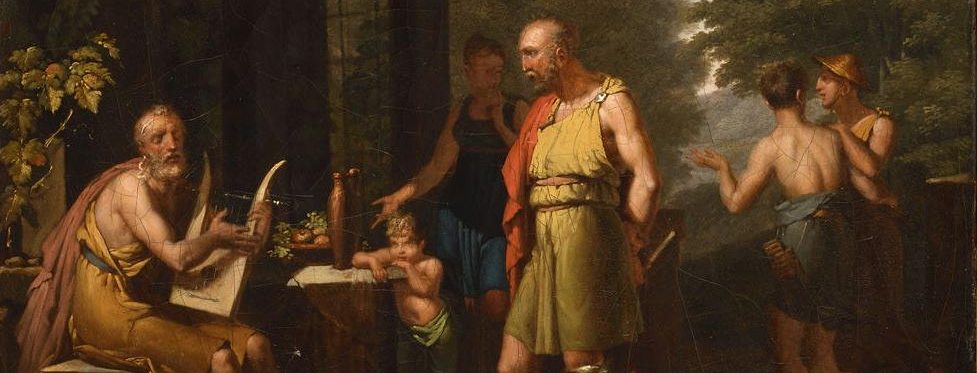Poetic and revolutionary: why Emily Wilson’s translations of Homer’s epics are my favourite
In modern times, the market for translated works has grown rapidly, with readers in many countries being able to access prominent literature from other cultures without having to learn another language. Translations can be criticised for missing certain cultural norms or sentiments through the act of translation itself, but translated works can be vital for our understanding of global cultures and history.
Wilson chooses her words very carefully to create a rhythm which mirrors the original purpose of The Odyssey as a poem, meant to be memorised by bards and then, performed
The importance of translations can be seen in both school and university syllabi across the UK, with the translated versions of Homer’s The Iliad and The Odyssey being required reading for many students. These works are widely regarded as seminal in Western literature, and yet until recently, translations of Homeric literature were largely male-dominated. However, recently, Emily Wilson, as an emerging and now established woman in translation, has made immense strides.
I first read Emily Wilson’s translation in my first year of university after studying E.V. Rieu’s translation in school. It felt like I was reading an entirely different text – the basic plot of Homer’s original story (Odysseus’ long and tragic journey to return home to Ithaca after the Trojan War) was the same, but the language was completely different. Wilson chooses her words very carefully to create a rhythm which mirrors the original purpose of The Odyssey as a poem, meant to be memorised by bards and then, performed. The way the lines are crafted results in the text feeling like a seamless poem, and not particularly prosaic, which lends it an admirable fluidity. The originally oral tradition consequently shines through.
Wilson uses the word ‘girls’ to describe them [Briseis and Melantho], reinforcing their youth and innocence, another stark reminder for the modern audience and a direct contrast to previous translations
Another key element of Wilson’s translations is her deliberate word choices surrounding women in the text. In both The Iliad and The Odyssey, Wilson uses the word ‘slave’ to describe characters such as Briseis and Melantho. On the other hand, previous versions used sanitised words like ‘handmaidens’ and ‘servants.’ The stark word choices, with their concerning connotations, reads as significantly more impactful for a modern audience, acting as a constant reminder for us of the Bronze Age society in which the events of the texts take place.
Additionally, Wilson has previously pointed out choices in translation made by previous male translators to refer to the female slaves in The Odyssey with a variety of misogynistic terms. In contrast, Wilson uses the word ‘girls’ to describe them, reinforcing their youth and innocence, which serves as another stark reminder for the modern audience and a direct contrast to previous translations. However, some critics have argued that this is a ‘feminist’ translation, and not faithful to Homer’s original. While it is true that Homer’s works aren’t kind to their female characters (see: Briseis, Andromache and Melantho among others), I would argue that, for a modern audience, Wilson’s choice of words are simply continuing years of scholarly debates on the role of Homer’s female characters, and that she is writing from a human perspective rather than the male-centric view of previous translations, making these classic works of literature more accessible.
To settle on a word, she considers her interpretation of the character described and chooses the word that best fits that
I was fortunate enough to listen to a talk given by Wilson at a Waterstones event, during which she read from her translation of The Iliad. In this event, she’d spoken about her love for Homer’s original texts and the beauty of how they were written. This love shines through her translations now, mirroring the rhythm and poetry of Homer, which was also evident during her readings. She first read the opening of The Iliad in the original Ancient Greek, and then her own translation. The opening line of The Iliad is one of the most famous in Western literature: ‘Sing, O Muse, of the rage of great Achilles’. Wilson uses the word ‘wrath’ instead of ‘rage,’ subverting the audience’s expectations from her translation from the outset.
She talked extensively about the way she chooses all her words deliberately when translating from Ancient Greek to English, as many words can have multiple different connotations. To settle on a word, she considers her interpretation of the character described and chooses the word that best fits that. In the rage vs. wrath translation, she chose ‘wrath’ as that is closer to the way the emotions of the Homeric gods are described, and Achilles looms large in The Iliad as a semi-divine figure, with similar destructive emotions as those of the gods.
In the end, Emily Wilson’s faithfulness to the poetic form of the original work was indelible, and hearing it read aloud immortalised it even more so, thus cementing her versions of both The Iliad and The Odyssey as my favourite translations of these works.

Comments